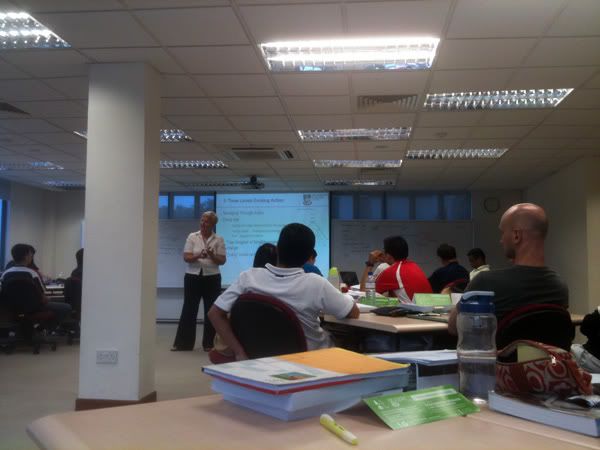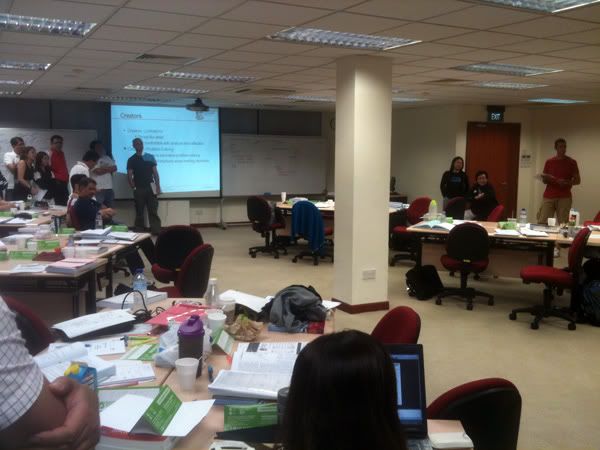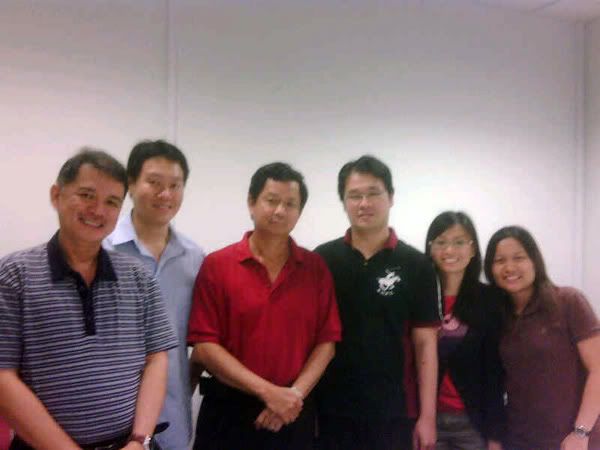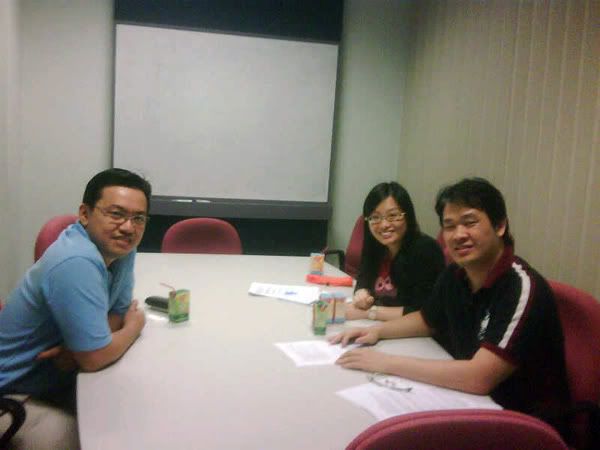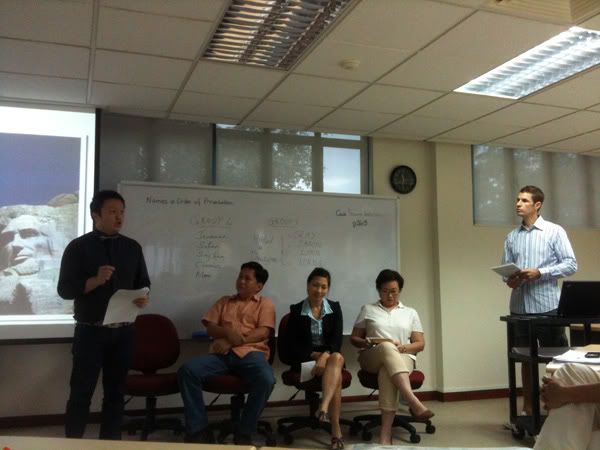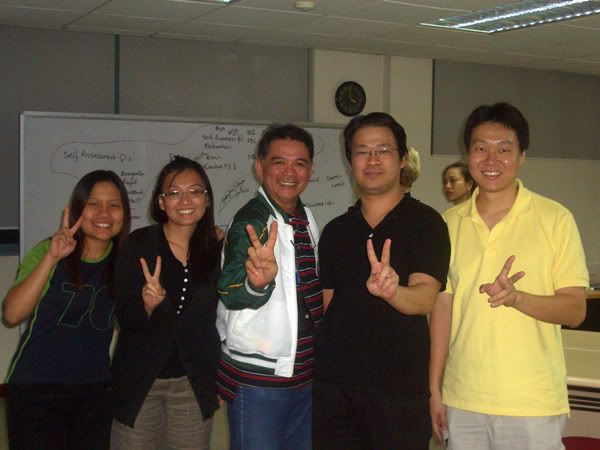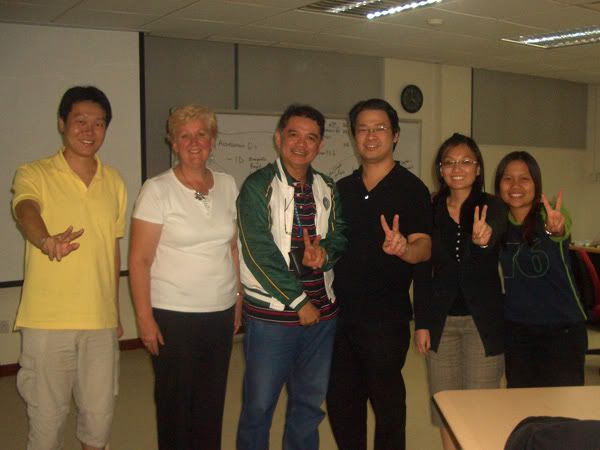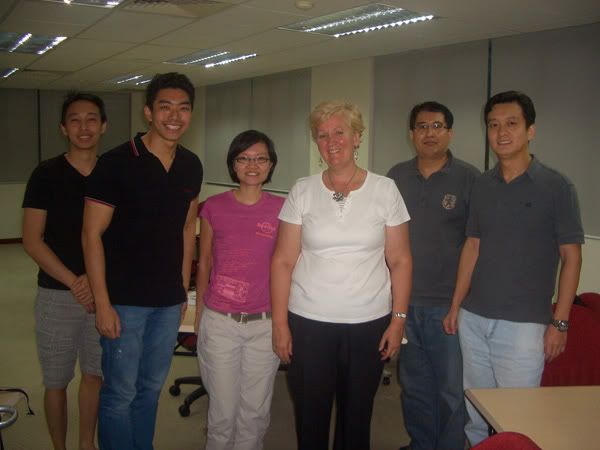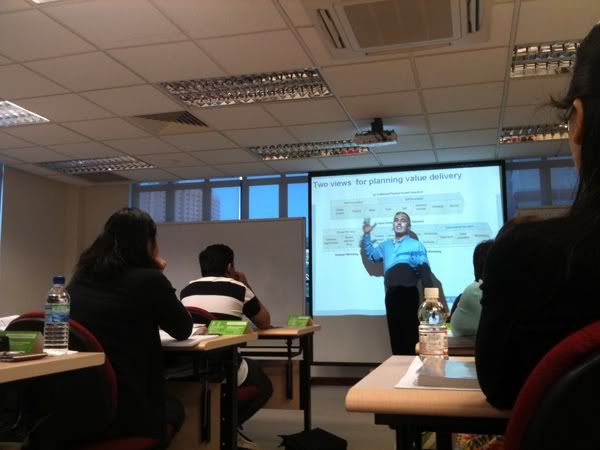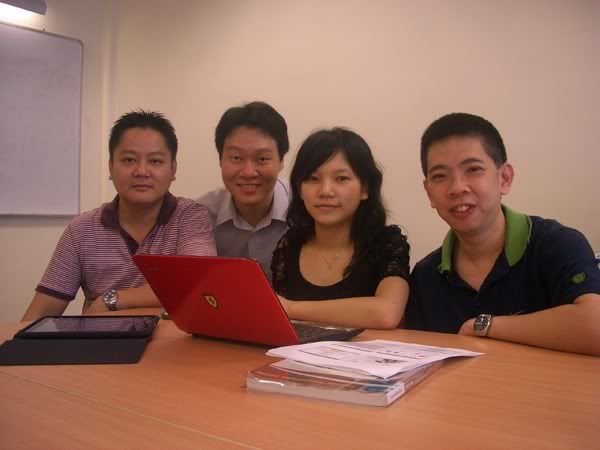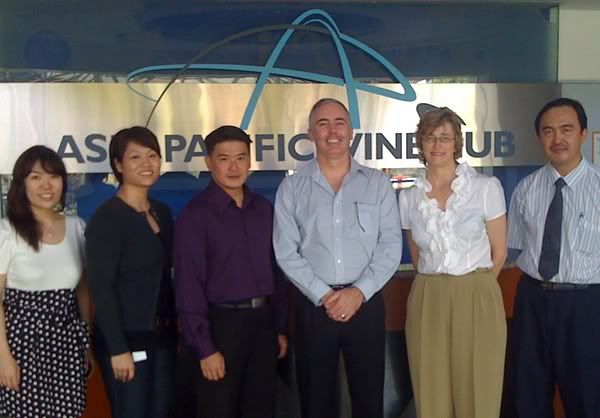Here is my review of the first module I have taken for my Master of Business Administration Course - Accounting for Managers.
My BackgroundI have absolutely no knowledge or background in accounting. I haven't studied it in school as compared to the rest of my group mates. And my work has nothing to do with accounting. Within this 1.5 months, I have come to appreciate and understand the work done by accountants and its importance.
LecturerMy lecturer for the course is Dr Chris Graves (in the picture below). He's an amazing lecturer and has a great sense of humor. Most importantly, he is able to explain abstract accounting concepts in layman's terms. I spent 3 weeks before the course reading up the textbook and got a bit confused. All the doubts are cleared in the 3 days intensive session where he easily explained and connect all the concepts together. Thumbs Up!
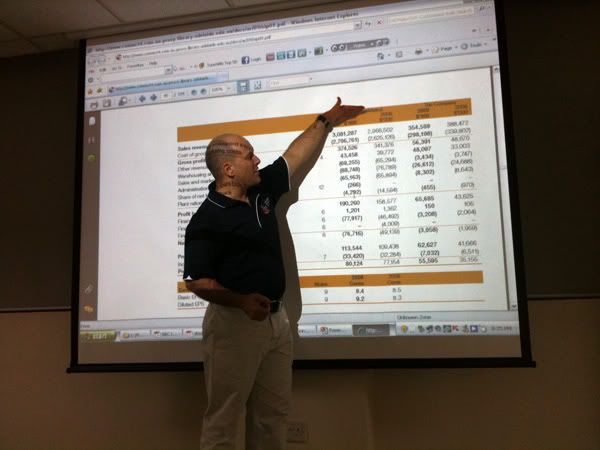
The main parts of the course are on Financial Accounting with the latter half on introductory to Managerial Accounting.
Learning to InvestThere is great emphasis in understanding the main financial statements covering the Income Statement, Balance Sheet and Statement of Cash Flow. Real corporate financial reports have been used. Of course the non-corporate financial reports are also highlighted such as governmental financial reports, not-for-profit financial reports and so on.
To evaluate the profitability, liquidity and solvency of a company, the accounting ratios were used. One of the most valuable skill I have learnt is in reading financial reports. I have a few large bluechip equities holdings in the Singapore Stock Exchange and they would send me big fat financial reports which I would normally just throw them straight into the bin. Normally I invest based on insights given by my dad and they are always accurate, who is accounting trained. Currently, I am able to do the analysis myself.
Now I understand why bluechips like SPH give lots of dividends but there is not much fluctuation in its share price while Keppel Land give little dividends but there is considerable gain in its share price.
Case StudiesSeveral case studies were explored with the students, the most notable of which is ABC Learning - the corporate entity which Temasek Holdings invested in and went bust. The idea of creative accounting has been shared with us and we understand there are limitations to financial statements.
There are also business ethics in relation to accounting. Dr Chris Graves shared with us a few heartfelt events in accounting where corporate entities have to make decisions based on their bottomline over human lives. The first case is the Ford Pinto incident. He said 'When you add value to human lives...' It is very true indeed that we cannot just add a numerical value (insurance claim) to human lives lost. He also shared with us on a World War II run Buchenwald Concentration Camp record. Prisoners generate revenue based on their work and upon death and there is an accounting value for their work. A closer to date example is the BP oil spill incident.
Let's branch off a bit from the course and take a look at some light moments in class. Dr Chris Graves asked us a question below. My style towards study since the university days has been answer A! No point worrying about it, let's worry about it later. Just have fun~ ^_^
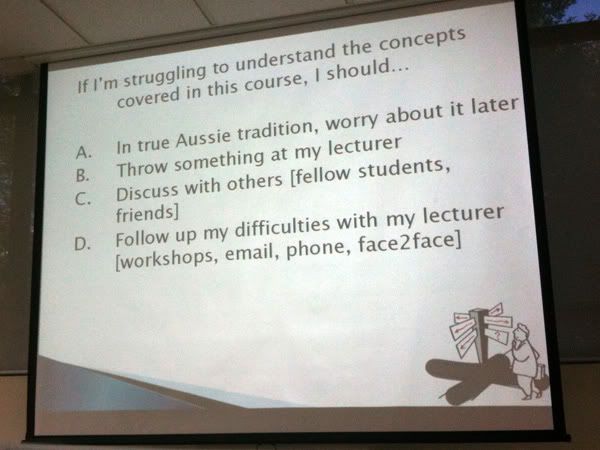 Everything is Business Accounting
Everything is Business AccountingFrom this course, I have realized that everything around us is based on business accounting. The government, not-for-profit organizations, religious bodies and of course corporate entities all following the same accounting principle and places great emphasis on the bottom line.
When I look at bank statements and there is a Debit and Credit to my account, I now know that the statement is generated from a bank's perspective. A credit means it's bad for them, good for us. While a debit means it's good for them, bad for us. So credit does not always mean deduction.
Even from a business school point of view, they are similarly run like business entities. We were working on a case study on how a business school is being ran. You can imagine how much those big business schools gets based on their tuition fees. And you can start implementing strategies on rapid student intake, getting accreditation, having online courses and so on while keeping fixed costs in check. Business schools spent a lot on marketing and charge high for student fees. At the end of the day, what they have learnt are pretty much the same. I still remember during the information session where the lecturer shared with us on the problem with accreditation. Imagine all business schools conform to the same standards, where is the uniqueness in each school. I shared this knowledge with a friend studying full-time in one of the top European Business school and he was amazed that I came to this insight in my first term. He realized it halfway through his course. It is actually thanks to the University of Adelaide Business School and its staff for their unique teaching experience.
All in all, for personal accounting, I have learnt not to pay my credit card bills so soon (pay it towards the end of the credit card bill deadline - accounts payable), and to collect cash owned by others as soon as possible (getting the pay check fast if possible - accounts receivable) and finally to invest idle cash in safe instruments while keeping inventory low (don't anyhow buy things).
I still remember the sharing by the Hungarian Zen Master Chong An Sunim that when we add value to everything, problems will arise. He relates a simple Greek story of how a king has a golden touch. Eventually everything he touches become gold. His love ones, his food, his followers. He also mentioned the flaws with regard to a Capitalist ideal. Capitalism is supposed to create wealth amongst all people. But currently, capitalism generated the greatest societal income disparity in history and created the most number of people living in poverty. Likewise, Communism ideal is supposed to be about a community of people living in harmony. But never in history has there been such an isolated group of people, living in fear amongst one another. This shows the extremes of ideals, the nature of duality.
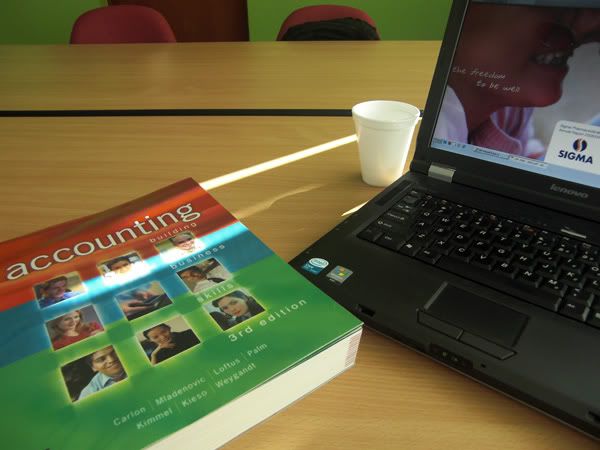 Group Project
Group ProjectThere is a 30% component in the module allocated to group project work. The entire class of 26 students have been divided into 4-5 students per group. I belong to the 'lucky' group with 5 students in it. All the members in the group are fabulous. The objective of the group project is to analyze the financial reports of Sigma Pharmaceutical and Australian Pharmaceutical Industries Limited.
As it is my first group project, I decided to be a group follower and observe how the more experienced students go about coordinating the project. It started out great with Gantt Charts and members name/contact all listed. As time goes by, with no definite leader within the group, it became quite chaotic and there is no clear sense of direction.
There are a few major mistakes that has been made and they are:
1) Too much time has been spent on numbers-crunching. Just a week before the group assignment deadline submissions, we are still doing verification of the numbers to ensure they are correct.
2) The group discussion time has not been spent constructively in discussing the integration and conclusion aspect. It's still spent working on the individual portion.
3) Without a clear direction of what is to be written, there are different analysis methods even a day before the assignment deadline.
This resulted in burnt-out and resigned members within the group. I did a check with the other groups on how they go about coordinating their portions. They said their respective tasks are delegated out right at the beginning so they are in-charge of their respective data integrity and correctness. The group discussion time is mainly spent on integration and in clarifying doubts along the way. That explains why they completed way before the deadline instead of rushing through at the last minute.
I noticed some of the problems have been recurring for some of the current group members based on their sharing. So the group management approach has to be changed. Using this first group assignment as experience, think I will play a more active role in guiding the direction of group assignments in the next module.
